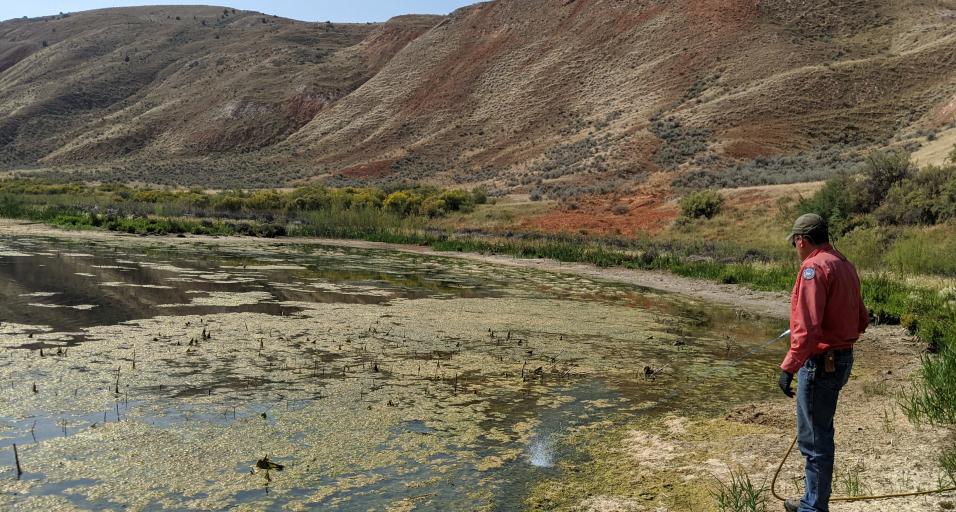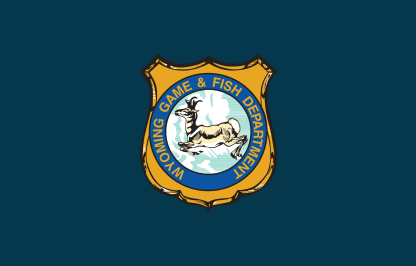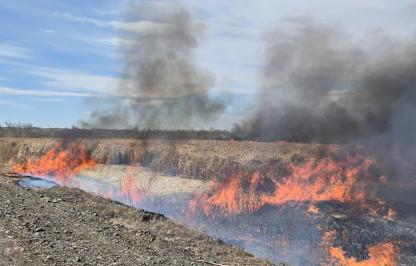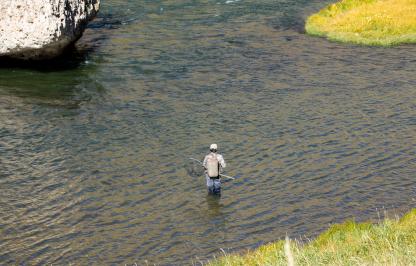Whether you visited Renner Reservoir for the first or tenth time this summer, you probably noticed a branchy, aquatic algae called chara covering the bottom of the reservoir. In August, Game and Fish explored an option to address this problem by treating two small portions of the reservoir with an algaecide. The goal of the treatment is to learn what tools might effectively control this overabundant macroalgae.
“Compared to other aquatic plants, which are referred to as macrophytes, chara forms denser mats offering less habitat for fish and a less palatable meal for invertebrates,” said fisheries biologist Joe Skorupski. “At high enough densities, chara can have negative ecological impacts on aquatic environments and be a nuisance to boaters and anglers. It’s fair to say that the density of chara in Renner is high.”
Aquatic vegetation in a body of water is important because it provides habitat and food for macroinvertebrates, which in turn provide food for fish. Macrophytes also stabilize sediment and provide cover for fish. Chara, however, is far less beneficial to aquatic ecosystems compared to coontail, and other species of aquatic vegetation that are present in Renner Reservoir. “By treating chara, we hope to give the higher quality vegetation a chance to flourish which would benefit the small reservoir,” Skorupski said.
To determine effectiveness, Game and Fish sprayed two test plots at varying doses of algaecide in mid-August. Seven days later the treated areas were revisited and nearly 100% of the chara was killed in both plots. On Nov. 4, little regrowth was observed, suggesting longer-term effectiveness of the treatment.
Based on the effectiveness of test plot spraying, Game and Fish plans to complete lake-wide spraying next spring. “Spraying early in the growing season will give other high quality plants a chance to better establish and is more cost effective. The spring application approach will be safe for the fish population,” Skorupski said. “Monitoring of spraying success and regrowth of chara and other macrophytes will be completed throughout 2021.”
A test plot in Renner Reservoir 69 days after treatment showing nearly 100% effectiveness in removing chara.
Into the weeds at Renner Reservoir: Game and Fish explores options to address algae
Joe Skorupski 307-527-7125




